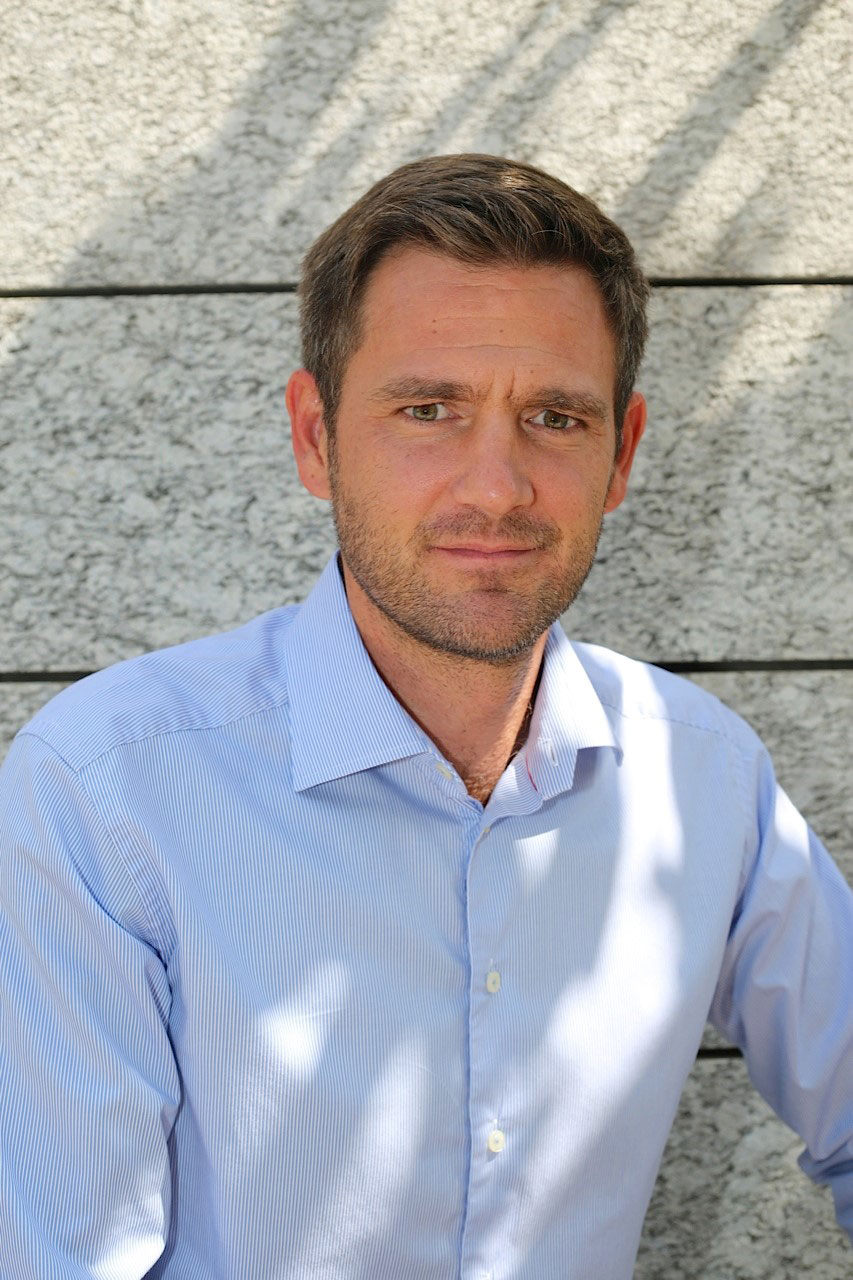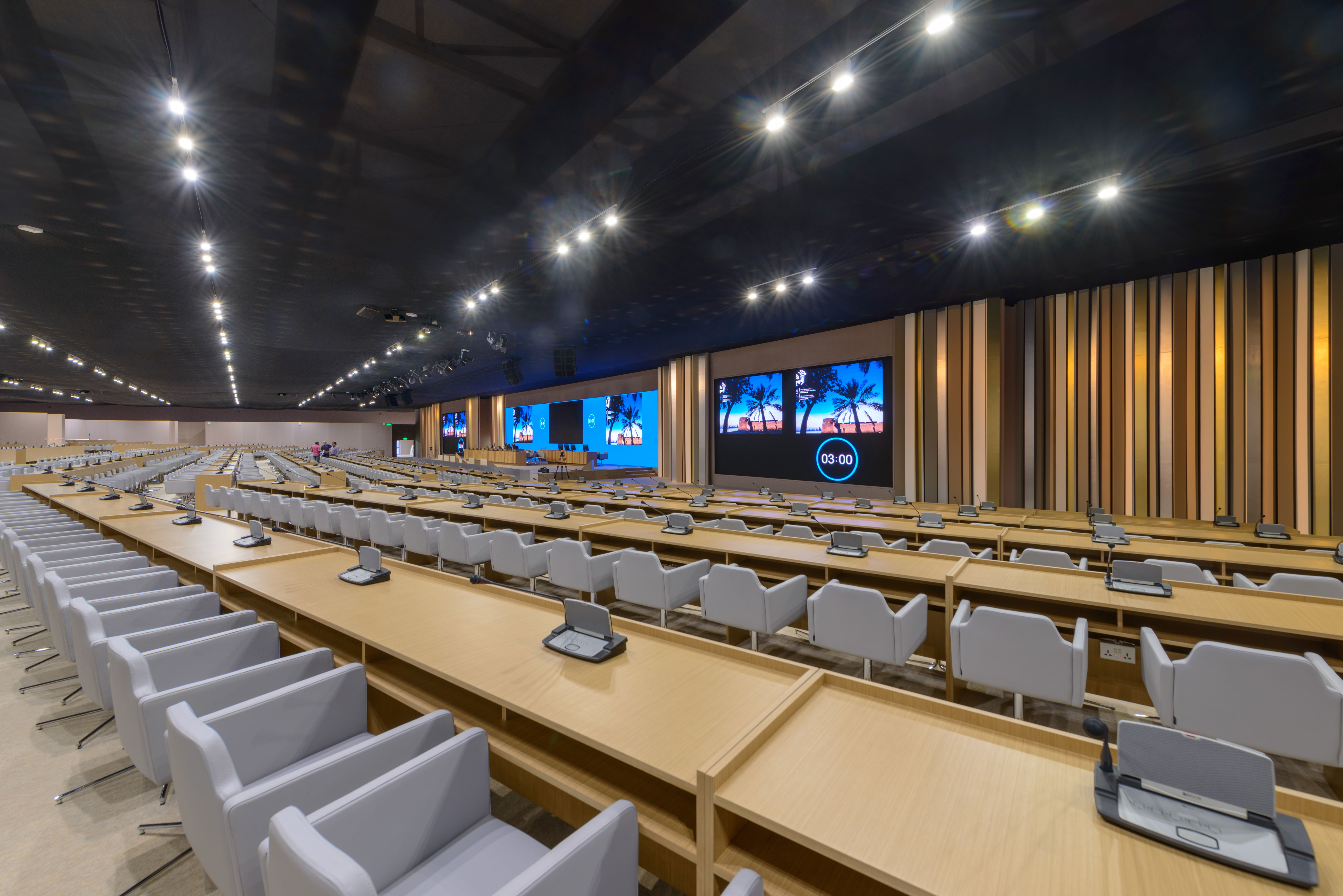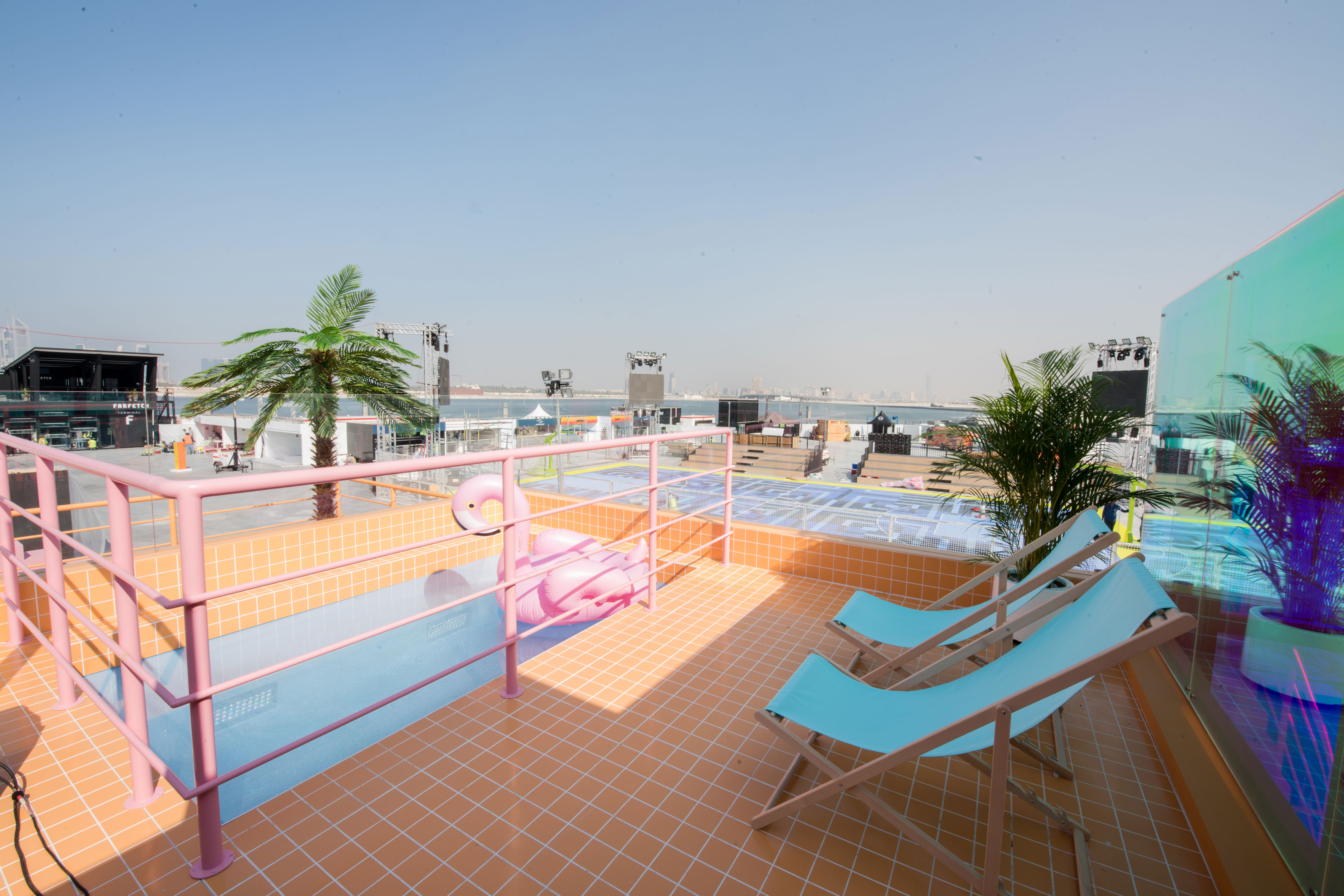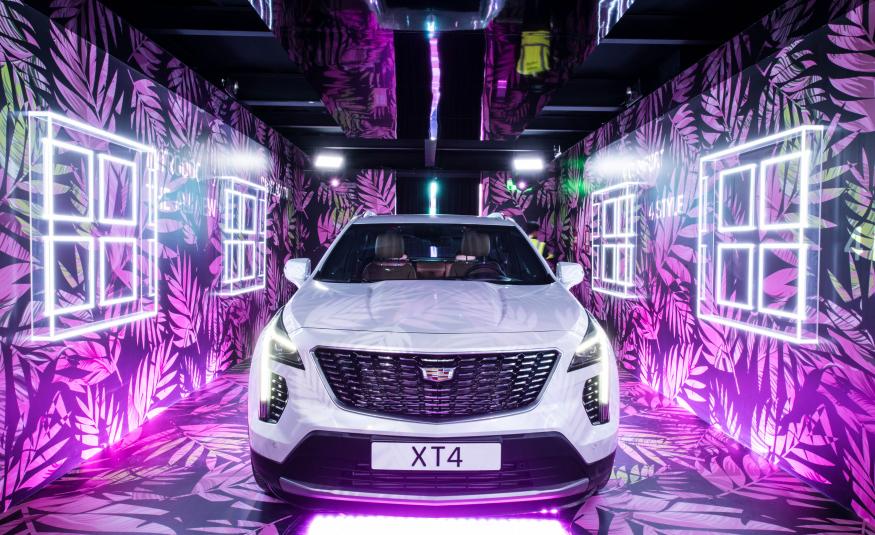EW speaks to Jean-Charles Durand, CEO of Dubai-based Electra, an event and exhibition contractor offering fully integrated solutions in the Middle East.
 Your company recently celebrated a silver anniversary. Where did it all start?
Your company recently celebrated a silver anniversary. Where did it all start?
Electra was founded in Dubai by Nino Mastrorilli, an Italian electrical engineer. The business originally focused on electrical contracting, but it soon moved into exhibition stand contracting.
I was working at one of the major event players in France and was responsible for international development. In 1997, I was sent to Dubai for two years and immediately fell in love with the country and saw its potential.
I briefly relocated to France and when I returned to Dubai in 2002 Nino approached me with an offer to sell me the business. I saw it as a tremendous opportunity.
What was the exhibition industry landscape like when you first set up in the region?
When we first started it was a market of small players. The existing stand builders were basically carpentry workshops making lots of shell scheme stands of low quality. Dubai World Trade Centre had already been established, but only had four halls instead of the 16 exhibition spaces they have today. Today of course, all the major international players have local affiliates and there are quite a few solid home-grown players.
What were your first key challenges in finding your feet in the regional market?
My timing could have been better. I arrived in the middle of the second Gulf War. Companies were just not investing in the region because of the risk. I was on the verge of a significant financial loss, when by luck I got the opportunity to build the VIP village for the first Bahrain Grand Prix. We were able to earn around 30% of our annual turnover in one event. We have not looked back. As soon as the war ended, we were able to quickly set up collaborations with a host of notable international players from my previous life.
The other big challenge we faced was finding reliable suppliers locally. This is when I decided to build a factory to control quality. Our in-house production facilities total 25,000sqm all equipped with state-of-the-art machinery.
The venue builds in the Middle East in recent years have been a phenomenon to behold.
The market has grown massively over the last 25 years, even exceeding my expectations. We’ve been able to develop our business, having started with just 14 employees. Electra now has 430, including event and project managers, detailers, carpenters, upholsters, electricians, and so on... We’ve invested in training our employees, which is something that gives me much satisfaction.

Where does the competition come from?
There is constant pressure to expand creatively and to improve efficiency and cost effectiveness.
Our main competition comes from the local branches of the major international groups as well as home grown players. Some competitors have diversified their activities by moving into design and creation. We decided to provide comprehensive exhibition and event solutions designed to guarantee clients a hassle-free fulfilment of their design vision and full support through all the stages of a project.
Our services include tent and furniture rentals, exhibition scenography, semi-permanent museum exhibitions, contracting and project management, and even bespoke décor and set up.
What are your main labour challenges?
We have more than 20 nationalities working at Electra and we have been successful in building a cohesive team, and a sense of family.
Health and Safety specifically is a challenge in the region because the workforce is not well trained about basic safety measures or aware of hazards related to their work. We apply the highest international production standards and project management practices.
As part of our Corporate Social Responsibility programme, we organise a variety of regular events for our employees and workers such as cricket tournaments, movie nights, yoga and meditation classes. We also support charities and local community programmes by volunteering and donating time.
What trends are you seeing?
The local market is growing at a tremendous speed. On the one hand, it is attracting smaller contracting actors, or cowboy operators who see an opportunity to get into the business. They tend to offer low-cost services at high prices, while not working according to basic safety procedures. This is bad for the industry.
On the other hand, the industry is becoming more mature. The relationship with venues and organisers is becoming much more collaborative. We are working together to improve health and safety standards, develop social responsibility programmes and more sustainable solutions.

What specifics mark out the Middle East tradefair market?
The tradefair market is related to each hosting city’s specific features. For instance, tradeshows in Abu Dhabi focus on oil and defence for obvious political and economic reasons.
Dubai on the other hand, is a hub for the Middle East, India and African countries. It is a global centre for art, fashion and business. We see many events here focused on construction, health, food, e-commerce or internet security. The visa regulations allow travel to Dubai easily. The tradefair market is very mature, and exhibitors must be prepared to meet the same standards as at the biggest international shows in Europe or North America.
Lastly, Saudi Arabia is seeing a huge growth in demand for exhibitions and conferences, and this is forecast to increase as the Kingdom ramps up local entertainment and cultural activities and encourages economic diversification. Meeting this new rising demand is one of the challenges we are preparing for.
You must be excited about Dubai Expo 2020?
We are very much looking forward to Expo 2020, which will be the largest event ever staged in the region. There will be hundreds of exhibitors and millions of visitors.
As part of the Expo 2020 “Better Together” Worker Welfare strategy, all contractors are expected to show proof of advanced worker welfare programmes to get their entrance ticket to the Expo. This gives more legitimacy to actors such as Electra who have been working as per international standards for years.
Expo 2020 will involve using sustainable building materials, reducing waste, improving sustainability awareness, retaining 80% of permanent construction post Expo and more. The challenge has been that we are somewhat limited by the market. For instance, we cannot find recycled materials or ways of recycling everything we use. I think that Expo 2020 will have a huge impact on developing a sustainable mindset in the region.
Which standout projects have you been involved with recently?
For the 42nd session of the World Heritage Committee for UNESCO, we were chosen to install the temporary structures hosting the committee, including the interior fit out. This was a very high-profile event with international exposure. The total area to be covered with tenting solutions was 8,200 sqm. We had a team of over 300 people working over two months to carry out the work. At the same time, we provided the full spectrum of project management services within strict deadlines.
More recently we worked with our client Prisme International (a creative agency) on the Cadillac Hotel for SOLE DXB, the region’s largest cultural festival focusing on fashion, music and art. The Cadillac Hotel concept was to create a unique pop-up featuring immersive experience rooms and a showcase for the newly released car with a fun and flashy glamorous Miami Beach hotel vibe. We were responsible for building the entire project, including a showstopping 6-metre mock pool, filled with water and visible from parts of the structure. This was an amusing project to work on. But it also had challenges related to fully realising the creative concept. There were many intricate details that had to be seen to, so that the appearance of the entire structure was seamless, exciting and attractive.





